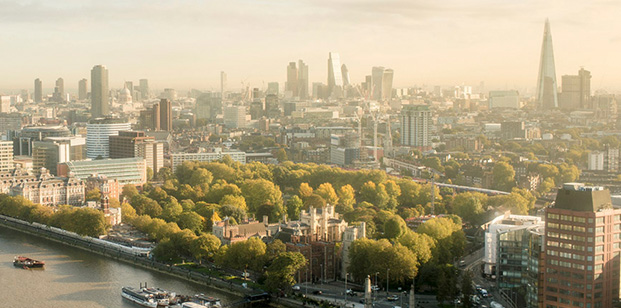The FTSE 100 Index ended 2024 in positive territory, rising by 5.7% over the year to notch up a fourth consecutive year of positive gains. However, the blue-chip index fell by 1.4% over December; investor sentiment was dampened by a cautious Bank of England which now expects zero economic growth in the final three months of the year.
- Interest rates remained unchanged at 4.75%
- Inflation reached its highest annualised rate since March
- The UK economy stagnated in Q3 2024
Cautious Bank of England: the FTSE 100 Index ended 2024 in positive territory, rising by 5.7% over the year to notch up a fourth consecutive year of positive gains. However, the blue-chip index fell by 1.4% over December; investor sentiment was dampened by a cautious Bank of England (BoE), which now expects zero economic growth in the final three months of the year. The insurance sector came into focus during the month following the news that FTSE 100 index constituent Aviva had agreed to buy mid-cap stock Direct Line in a deal worth £3.7 billion. The FTSE 250 Index fell by 0.7% in December but rose by 4.7% over the year. Elsewhere, the yield on the benchmark UK government bond rose from 3.54% at the end of 2023 to end 2024 at 4.57%.
“Businesses face the prospect of navigating rising cost pressures alongside higher employers’ NICs”
Tighter for longer? Persistent inflationary pressures stoked expectations that interest rates are likely to fall more slowly than previously hoped. During December, the BoE kept its key interest rate at 4.75% following the news that the annualised rate of consumer price inflation had risen for a second consecutive month from 2.3% to 2.6%, reaching its highest rate since March. Core inflation climbed from 3.3% to 3.5%, while inflation in the services sector remained at 5%. The Organisation for Economic Cooperation & Development (OECD) warned that UK monetary policy is likely to remain “tighter for longer” because of some of the measures in the October Budget and predicted that rates will fall to 3.5% by early 2026.
Lacklustre growth: the UK economy stagnated during the third quarter of 2024, according to the Office for National Statistics, which revised down an earlier growth estimate of 0.1%. The economy shrank by 0.1% in October, following a contraction of 0.1% in September. The British Chambers of Commerce (BCC) downgraded its 2024 growth forecast for the UK from 1.1% to 0.8% but raised its 2025 forecast from 1% to 1.3%. The BCC expects inflation to remain above its 2% target until the end of 2026 and warned that businesses face the prospect of navigating rising cost pressures alongside higher employers’ National Insurance contributions. According to GfK’s Consumer Confidence Index, confidence picked up slightly in December following a post-Budget dip, as UK consumers became more sanguine about the prospects for their personal finances. However, the index remained firmly in negative territory overall.
To view the series of market updates through December, click here









